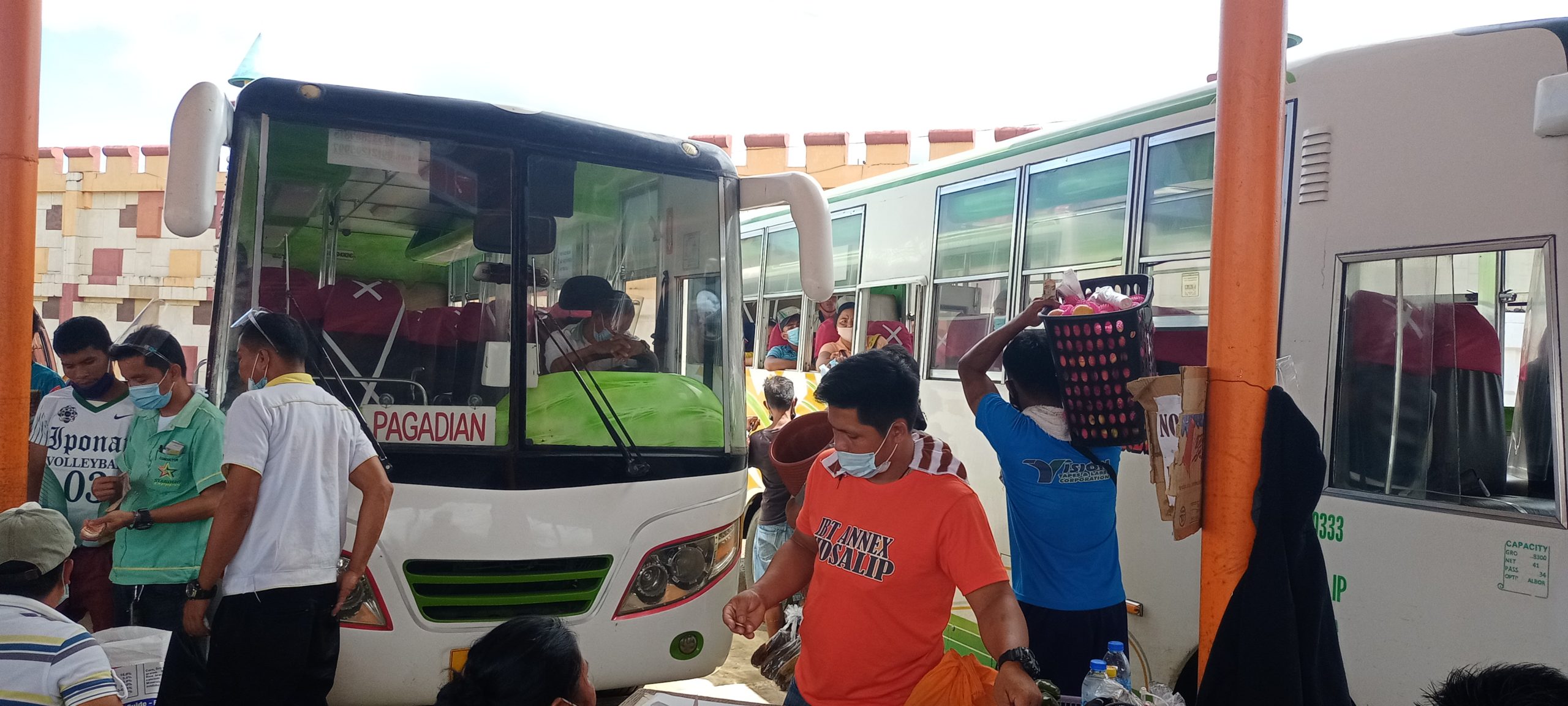3 bus companies to launch modern PUV units in Zamboanga del Sur

At the Pagadian city terminal, mini buses owned by StarLight Express wait for passengers. The buses ply the Pagadian City to Midsalip town route in Zamboanga del Sur will soon be modernized as the bus company committed to join the public utility modernization program of the government. LEAH AGONOY
PAGADIAN CITY—At least three bus companies in Zamboanga del Sur have committed to support the government’s public utility vehicles (PUV) modernization program.
Midsalip town’s Starlight Express, Dipolog City’s Evergood Transit and the Rural Transit Mindanao, Inc. (RTMI) showcased their new modern units on Friday, October 9, during the launching of the program here.
“It is proper to recognize their willingness to upgrade,” said Land Transportation Franchising and Regulatory Board (LTFRB) regional director Nonito Llanos III, referring to the three bus corporations. “Thus, we launch their modernized vehicles so the riding public will know.”
Llanos said the launch aims to entice around 40 transport cooperatives in the region to apply for franchises.
“Cooperatives and corporations can take advantage by applying for loans from the banks as two government banks currently offer a huge portfolio for the modernization program payable in seven years. “(I)t would not be (too) heavy for the cooperatives for the loans (have) very minimal interest,” he said.
Article continues after this advertisementDrivers, however, have been wary about the scheme which they said would turn them into hired employees of bus cooperatives and corporations instead of owners and operators of their own PUV unit.
Article continues after this advertisementLlanos said he expected more transport cooperatives to follow the three bus companies.
“In the past, (drivers) operated only one vehicle per individual but (once they create a) cooperative, they already have a number of vehicles employing more than a hundred people for such jobs as vehicle maintenance, assistants for the drivers, among others,” Llanos said. “Having this large number of employees would mean the cooperative would be earning big while giving clean, efficient, environment-friendly and safe public utility vehicles,” he added.
Llanos said under the new scheme, each cooperative would be awarded with travel routes which the cooperatives would ply exclusively. “They would be assured of income from these routes,” he said.
The LTFRB would ask different local government units in the region to come up with their local public transport route plans. This would allow the LTFRB to distribute these routes to cooperatives or corporations that would be granted with franchises to ply the routes.
“Once the public transport route plans would be completed, we could easily determine which cooperatives would be granted franchises for the routes and how many modernized vehicles they would ply,” he said.
“This is our way of encouraging cooperatives to upgrade their units,” he added.